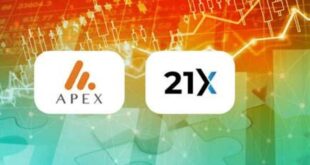As artificial intelligence (AI) continues to advance at an unprecedented pace, concerns around data privacy, security, and centralization are becoming more pressing. The current AI landscape is largely controlled by a handful of powerful entities that dictate how data is collected, stored, and utilized. This centralized model poses risks of bias, misuse, and monopolization. The solution? Decentralized data—a paradigm shift that could redefine how AI learns, operates, and benefits society.
The Problem with Centralized AI Data
Today’s AI systems rely heavily on massive datasets owned by corporations and governments. This centralized approach presents several challenges:
- Privacy Concerns – Users have little control over how their data is used.
- Single Points of Failure – A breach or manipulation of a central database can have widespread consequences.
- Bias & Lack of Transparency – Centralized models can reinforce existing biases due to opaque training data.
- Limited Accessibility – Small-scale innovators often struggle to compete with tech giants that monopolize AI data.
How Decentralized Data Empowers AI
Decentralized data shifts control from corporations to individuals and communities, allowing AI to evolve in a more secure, fair, and transparent manner. Here’s why it matters:
1. Enhanced Data Privacy & Security
By leveraging blockchain and federated learning, decentralized AI systems can train models without exposing raw user data. This ensures that sensitive information remains private while still contributing to AI development.
2. Reducing Bias & Increasing Transparency
With a decentralized approach, data sources can be verified and tracked, making AI training processes more transparent. Open-source models that pull from diverse datasets can lead to fairer, unbiased decision-making.
3. Empowering Individuals & Small Innovators
Decentralization democratizes access to data, allowing smaller players to build competitive AI models. This fosters innovation and competition, preventing a few corporations from controlling AI’s future.
4. Resilience Against Manipulation
Unlike centralized repositories that are vulnerable to hacking or censorship, decentralized data networks are more resilient and tamper-proof, ensuring that AI models rely on trusted, verifiable sources.
While decentralized data is promising, challenges remain, including scalability, governance, and adoption barriers. However, projects integrating blockchain, decentralized storage, and privacy-preserving AI are already paving the way. The shift toward decentralized AI isn’t just necessary—it’s inevitable.
As AI matures, the choice is clear: continue down the path of centralized control or embrace a decentralized future where data is secure, fair, and accessible to all. The next phase of AI evolution depends on the steps we take today.
 Business Sandesh Indian Newspaper | Articles | Opinion Pieces | Research Studies | Findings & News | Sandesh News
Business Sandesh Indian Newspaper | Articles | Opinion Pieces | Research Studies | Findings & News | Sandesh News



